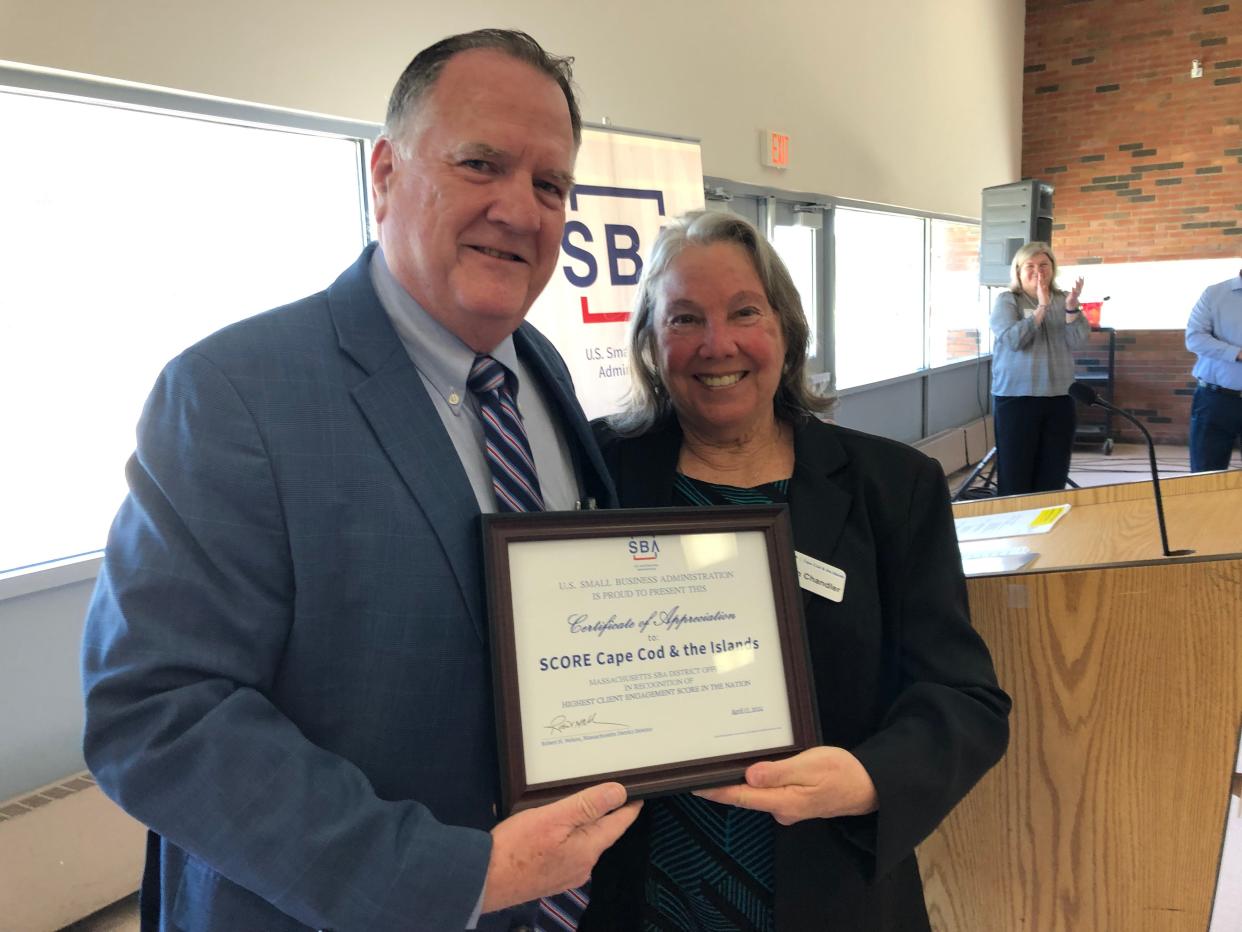'Put the skunk on the table' and other tips for succeeding as a small business in Mass.
BARNSTABLE — The Small Business Administration played matchmaker Wednesday at the high school where local lenders were on hand to talk with small-business owners about how they might tap into capital to start, grow, or expand.
The event drew nine lenders and 15 organizations that could provide resources to help small businesses get loans. About 200 small businesses registered for the event, according to Robert Nelson, Massachusetts District Director for the SBA.
“There is a small-business boom in Massachusetts,” said Nelson.
He said 17 million small businesses have started up nationally since the start of the Biden-Harris administration, setting an all-time record. The average monthly number of small businesses start-ups is 440,000 nationally. The SBA has been a crucial partner in that growth. The government agency offers a variety of loans from $500 to $5.5 million, but each has different allowed uses, borrowing limits, repayment terms and approval requirements.

Cape Cod saw $35 million in Small Business Administration loans in 2023
Last year, the SBA processed $27.5 billion in 7A loans, which are guaranteed loans to lenders, and $6.4 billion in 504 loans, Nelson said. The 504 loans are typically for owner-occupied real estate loans or funds to buy major equipment. SBA guarantees make it easier for lenders to approve loans.
In Massachusetts, the SBA did $818 million last year in capital support thru 504, 7A, and microloan programs. In Barnstable County $35 million in more than 100 loans were made.
They included loans to providers of home health care, food and janitorial services, restaurants, interior design, electrical and finish carpentry businesses, and home, toy and game stores, Nelson said. Loans were made to new businesses, established businesses and those owned by women, veterans and people of color.
What lenders want from a small-business owner seeking a loan:
Do your due diligence before seeking a lender. Find a lender you can trust and who will work with you. Don’t get discouraged. Be prepared with a business plan, an elevator speech, and an understanding of the business and industry.
How much money is needed and for what? Provide estimates for what is needed. Show how revenue is generated and who your key vendors are. Provide financial projections.
Lenders want to know how much capital an owner has put into a project.
Trying to get a loan when there are negatives in your background
“Put the skunk on the table," said Eric Bancroft, vice president and SBA specialist with TD Bank. “Disclose the negative aspects of your business. Did you file for bankruptcy? What is your debt?”
Personal information that can be considered includes credit issues, personal tax returns and financial statements, business tax returns, any other assets and other sources of income, including spouse and passive income.
Respond quickly to lender questions during the underwriting process. Provide a list of professional advisers (paid and free) who help the business. Schedule appraisals or environmental reviews, if needed.
Is there a guarantee from spouses or partners, or other assets or sources of income? Are there credit issues? Lenders will look at personal tax returns and personal financial statements, business tax returns and your skills as they align with the business.
Working with local government
All cities and towns must comply with Massachusetts General Laws. Understanding the process in one town can help with bids for other towns. Consider small jobs to bid on and build relationships with larger contractors. Opportunities can pop up for jobs, like carpet cleaning or janitorial services for schools. Use these as steppingstones to other opportunities.
Working with Massachusetts
Massachusetts must hit benchmarks for doing businesses with minority-owned business. A business must be certified to quality. Once certified there’s an increase in opportunities to partner with larger vendors who have diversity commitments.
The state's Operational Services Division offers a free 3-hour training course on getting certified.
The Inspector General's office offers a 2-day course on state procurement procedures and requirements.
The state uses COMMBUYS for purchasing. Find out how the state purchases what you are selling.
Denise Coffey writes about business, tourism and issues impacting the Cape’s residents and visitors. Contact her at dcoffey@capecodonline.com .
Thanks to our subscribers, who help make this coverage possible. If you are not a subscriber, please consider supporting quality local journalism with a Cape Cod Times subscription.
This article originally appeared on Cape Cod Times: How to get a loan as a small business in Massachusetts, and other tips
